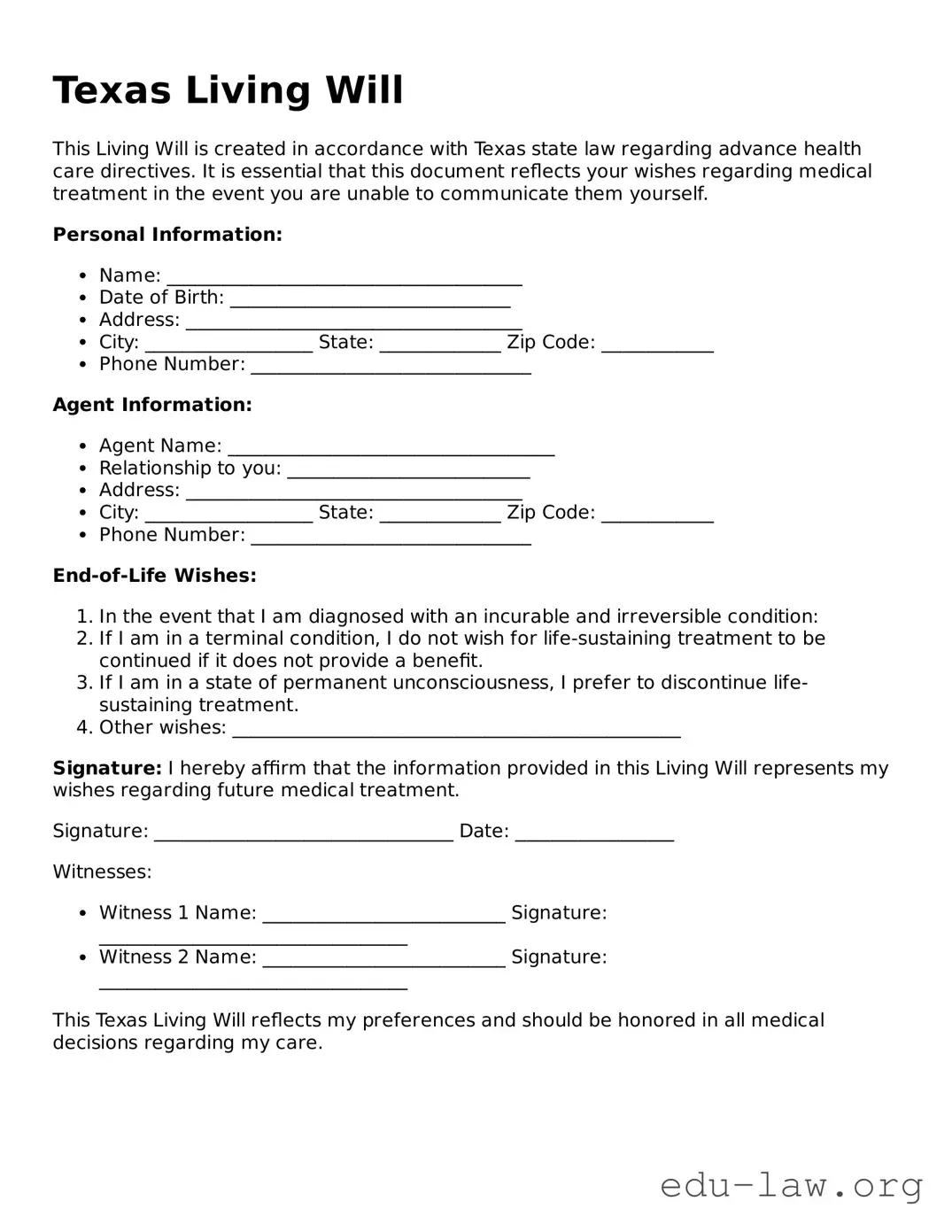What is a Texas Living Will?
A Texas Living Will is a legal document that allows individuals to express their wishes regarding medical treatment in situations where they cannot communicate their decisions. This form is specifically designed for end-of-life preferences, ensuring that healthcare providers and family members know what actions should be taken if a person faces a terminal condition or is in a persistent vegetative state.
Who should consider creating a Living Will?
Anyone aged 18 or older should consider creating a Living Will, especially if they have specific health concerns or a chronic illness. It’s an essential part of advance healthcare planning, allowing individuals to have a say in their treatment options and ensuring their values and preferences are respected in critical situations.
How do I create a Texas Living Will?
To create a Texas Living Will, you can obtain the form from various sources, including hospitals, legal websites, or your healthcare provider. It must be completed in writing, signed by you, and witnessed by two qualified individuals who do not stand to gain from your estate. Alternatively, a notary public can validate the document. Once completed, keep the documents in an accessible place and share copies with family members and healthcare providers.
Can I change or revoke my Living Will?
Yes, you can change or revoke your Living Will at any time, as long as you are competent to do so. To revoke it, either destroy the document or create a new one that explicitly states your wish to cancel the prior Living Will. Make sure to inform your family and healthcare providers about the changes to avoid any confusion in the future.
What happens if I do not have a Living Will?
If you do not have a Living Will and you become unable to communicate your wishes, your healthcare providers may follow medical protocols, but they will have to rely on your family or friends to make decisions on your behalf. This can potentially lead to situations where your wishes may not be honored or where family members may disagree, resulting in stress and conflict among loved ones during an already difficult time.
Is having a Living Will the same as having a Power of Attorney?
No, a Living Will and a Power of Attorney serve different purposes. A Living Will focuses solely on your medical treatment preferences in specific life-threatening situations. In contrast, a Power of Attorney is a document that designates someone to make financial or medical decisions on your behalf when you are unable to do so. Having both documents in place is beneficial for comprehensive planning and ensuring that all your wishes are clearly articulated.
